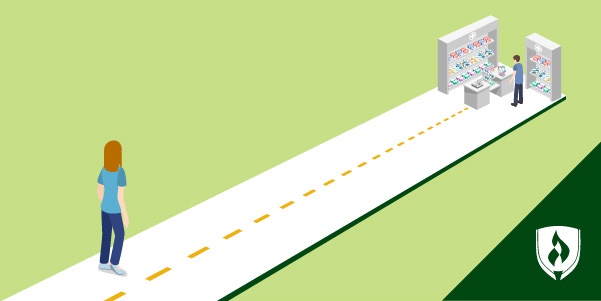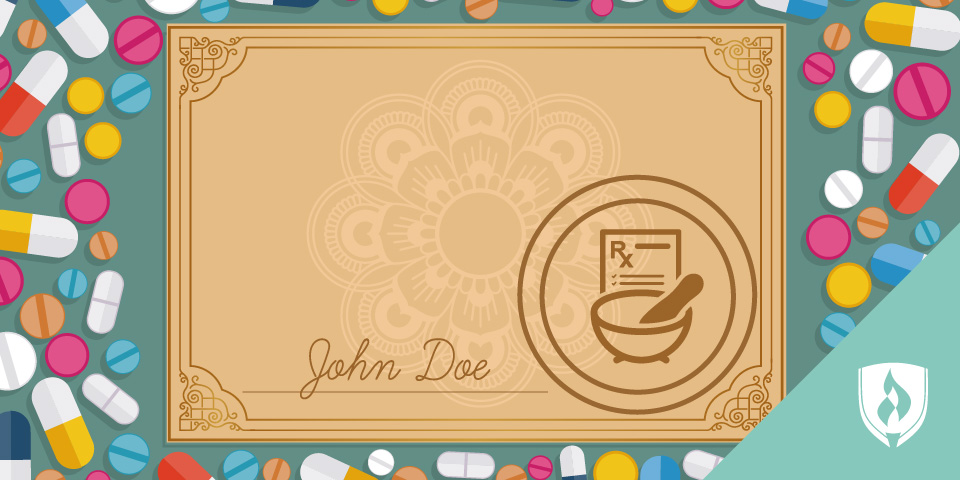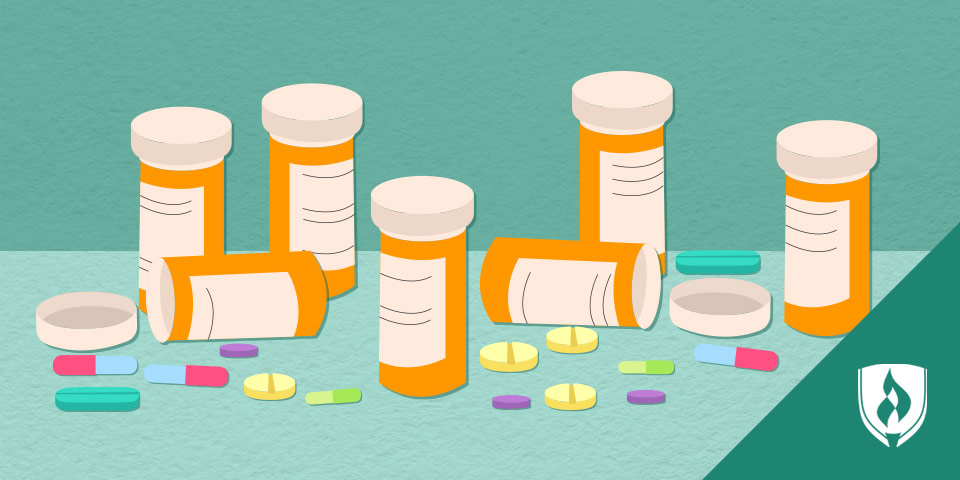
We’ve all seen them before, the smiling people in the pharmacy who help us when we pick up and pay for our prescriptions. In the past, you may have assumed they were pharmacists. But in actuality they are the pharmacy technicians, also referred to as pharm techs.
Sure, you might think they are essentially just a kind of cashier, handing people their prescriptions and handling the cash register. But their duties are far more in-depth than that. In fact, they play an important role in ensuring patient safety.
If you’re at all curious about pharmacy tech duties and what you can expect on the job, then you’re in the right place. What does a pharmacy tech do? Read on for a duty-by-duty explanation of the work you can look forward to as a pharmacy tech.
5 Important pharmacy technician duties
Of course, the nitty-gritty specific responsibilities will vary somewhat based on where you work (hospital, drugstore or retail pharmacy) and which state you work in. However, we enlisted Jeremy Barthels, department chair of the Rasmussen College Pharmacy Technician program, to help identify some standard pharmacy technician duties that apply to nearly any pharmacy setting.
Learn more about these five pharmacy tech duties to get a better understanding of the profession so you can decide whether it’s the right career for you.
1. Receiving and confirming prescription orders
What does a pharmacy tech do day-to-day? Receiving and confirming prescription orders is a huge part of it. In today’s digital world, most prescriptions come in the form of e-prescriptions, according to Barthels. He says that not only will the pharmacy tech need to retrieve these prescriptions via computer software, but they will also need to verify insurance coverage prior to the patient picking up their prescription.
“Although there may be more e-prescriptions than in the past, it is still a vital part of the technician’s role to obtain and confirm the patient’s information when he or she brings in a written prescription,” Barthels says. This includes ensuring the correct spelling of the patient’s name, their address, phone number, date of birth, drug allergies and insurance information.
Because one small mistake could have major repercussions, it’s vital that pharm techs have an extreme attention to detail.
2. Preparing and filling prescriptions
When it comes to filling prescriptions, it’s more than just counting pills and labeling bottles. Barthels explains that this pharmacy tech duty is a very detail-oriented process with more variety than you might expect.
“Most individuals think of prescription medications as pills or capsules, but there are medications that need to be prepared such as various creams, ointments and compounds,” Barthels says.
Pharm techs working in hospitals and specific hospital units may be preparing intravenous products like Total Parenteral Nutrition (TPN) solutions, medications and treatments—all of which play an important role in patient safety and recovery.
3. Interacting with customers and answering questions
If you are working within a retail pharmacy of any kind, you can expect to interact regularly with patients or customers. This may mean helping them purchase their prescriptions, locating an over-the-counter medication, answering basic medical questions or referring them to the pharmacist.
“Obviously, customer service skills are a must,” Barthels says. The pharmacy technician must be able to provide simple answers to technical questions about insurance coverage and copays. They are also expected to be a kind, helpful presence behind the counter, so strong interpersonal skills are essential.
Many of the people visiting a pharmacy aren’t thrilled to be there—being sick and dealing with insurance isn’t a whole lot of fun. So it’s critical you have the right personality and attitude to make the experience as pleasant as possible. Customer-service skills are one of the key pharmacy tech skills you can leverage in the field.
4. Managing inventory and performing organization tasks
Imagine you were just diagnosed with an illness and need to pick up your antibiotic before heading home and crawling back into bed. You go to your pharmacy only to find out they don’t have enough of the antibiotic you need in stock to fill your prescription.
At best, it’s an inconvenience and at worst, a serious problem. This is just one reason managing inventory is such an important duty that falls on the shoulder of the pharmacy technicians.
According to Barthels, managing inventory might include performing regularly scheduled inventory counts on specific medications, stocking inventory and checking for expired medications. This process keeps the pharmacy stocked and prevents potentially disastrous issues with out-of-date drugs.
5. Various specialized roles
As you’ve already seen, pharmacy technicians are vital to maintaining an organized, effective and safe pharmaceutical practice. In addition to all of the duties mentioned above, some pharmacy technicians take on expanded roles as they gain experience and progress in their careers.
“Some pharmacy technicians get promoted to pharmacy technician supervisor, overseeing and managing the other pharmacy technicians,” Barthels says.
Additionally, pharm techs may become specialized in a specific area such as compounding. Many of these advanced duties will depend heavily on the setting you work in as well as state laws and regulations.
Pharmacy tech skills you’ll need to succeed
As you can see, there’s more to the work of a pharmacy tech than you might expect. So what skills will you need to be successful? Let’s take a closer look at some of the top transferable skills and abilities you’ll need and how they’re applied.
- Communication: Pharmacy techs communicate with pharmacists and doctors when taking prescription orders. They also have to listen carefully to customers’ needs and questions to potentially direct them to the pharmacist.
- Problem-solving: Pharmacy techs should have the maturity to solve conflicts between patients, insurance companies and co-workers.
- Organization: Pharmacy techs balance duties delegated by pharmacists like stocking shelves, keeping inventory while serving patients and customers.
- Mathematical skills: Filling prescriptions and compounding medications require a strong understanding of necessary math concepts.
- Detail-oriented: Serious health problems can result from mistakes with prescription types, amounts or interactions. Though pharmacists are directly responsible for the safety of the medications, pharmacy techs are a first line of defense for these risks.
Plan your next step
Now that you have a better understanding of pharmacy technician duties and responsibilities, could you picture yourself in this profession? If so, you’re ready to take the next step.
Learn more about the path ahead of you in our article, “Your Prescription for How to Become a Pharmacy Technician.”
Editor’s Note: This article was originally published in March 2015. It has since been updated.




